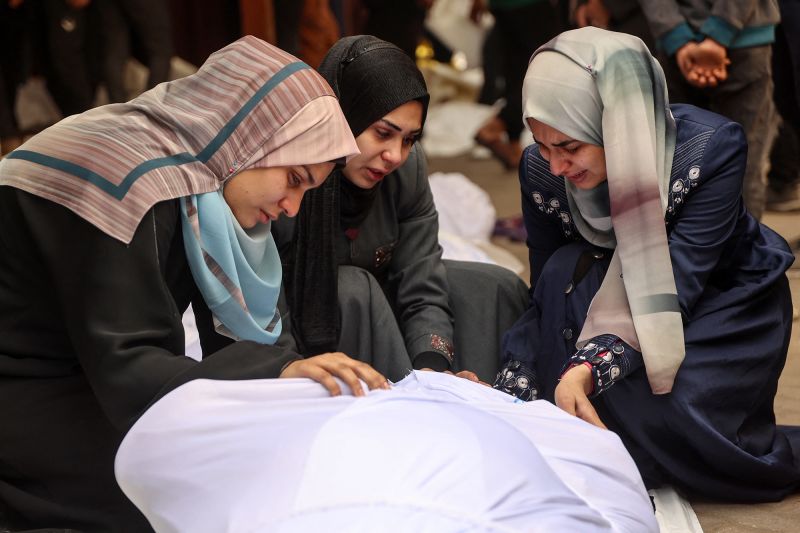Israel’s PM alleges Hamas backtracking on ceasefire agreement
“Hamas reneges on parts of the agreement reached with the mediators and Israel in an effort to extort last-minute concessions,” a statement from Netanyahu said.
“The Israeli cabinet will not convene until the mediators notify Israel that Hamas has accepted all elements of the agreement.”
The Israeli cabinet was set to ratify the deal today.
Hamas official confirms commitment to ceasefire deal
In a post on Telegram, Hamas official Izzat al-Risheq says the group is “committed to the ceasefire agreement” in Gaza as outlined by mediators Qatar and the United States. The statement comes after the Israeli Prime Minister’s Office accused Hamas of backtracking on some elements of the deal to extract “last-minute concessions”.
Benjamin Netanyahu has faced great domestic pressure to bring home the scores of captives in Gaza, but his far-right coalition partners have threatened to bring down his government if he makes too many concessions.
No signs of Hamas backtracking on ceasefire deal
We are not seeing any sort of leaks about Hamas going back on what they agreed upon in this deal. What we are seeing rather is internal conflict within Benjamin Netanyahu’s government, specifically among the Religious Zionism Party.
This is the party of Finance Minister Bezalel Smotrich, who has been threatening to leave the coalition if this deal came to a vote, saying this was a bad deal for Israel, that his party would need guarantees that Israel will go back to all-out fighting … after the initial phase [of the agreement].
The party is holding its own meetings, saying that they are not going to vote until they decide whether they are going to leave the coalition. Members of this party have said that they are very likely to step down from the government and this is causing a lot of problems.
Father of 2 Israeli captives to sue Ben-Gvir if Gaza deal falls through: Report
Itzik Horn, father of Israeli captives Eitan and Yair, says if the deal does not get approved by Israel’s cabinet because of far-right National Security Minister Itamar Ben-Gvir “and those who oppose the deal, and God forbid something happens to one of my sons – I will personally sue them criminally”.
“I don’t know if they’re on the list or not; no one called me, the state is making a selection,” he told Israeli Army Radio.
“All I know is from the media, so I’m not packing a suitcase or thinking about what to cook yet. I’m in favour of, if they can get someone out of hell – then they must.”
Ben-Gvir has said advancing Gaza ceasefire talks constitute a “surrender deal to Hamas”, adding that if the deal passes, he will resign from the Israeli government.
























































